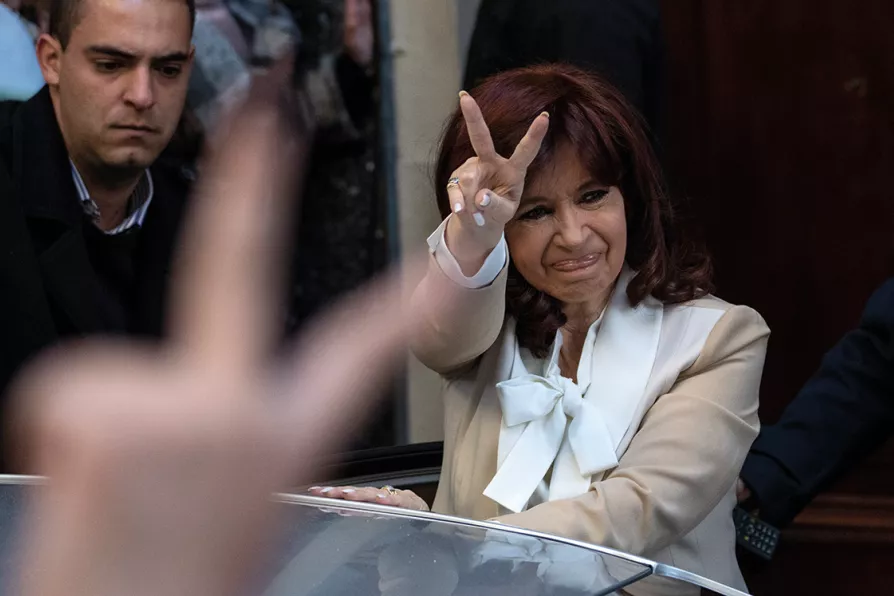The selection, analysis and interpretation of historical ‘facts’ always takes place within a paradigm, a model of how the world works. That’s why history is always a battleground, declares the Marx Memorial Library

 Argentine Vice President Cristina Fernández de Kirchner greets supporters as she leaves her home in Buenos Aires, Argentina, on Aug. 23.
Argentine Vice President Cristina Fernández de Kirchner greets supporters as she leaves her home in Buenos Aires, Argentina, on Aug. 23.
THE conviction of Vice-President Cristina Fernandez de Kirchner on charges of fraud has been condemned by several other Latin American leaders as being just one more example of “lawfare” — a scheme where due process is manipulated by right-wing elites to attack their political opponents, as happened with Lula in Brazil and Fernando Lugo in Paraguay, among several other examples.
After the decision was handed down on December 6, Cuba’s President Miguel Diaz-Canal said that the verdict was a “politically motivated judicial process,” Bolivia’s President Luis Arce stated that Fernandez de Kirchner was the victim of a judicial coup and his Mexican counterpart Amlo said that he had “no doubt she is the victim of a right-wing political vendetta.”
Here in Argentina, trade union leaders criticised the ruling which was the subject of wall-to-wall coverage in the press and on TV and, for a few days, even took Lionel Messi and the World Cup off the front pages.

ANSELM ELDERGILL examines the government’s proposals to further limit the right of citizens to trial by jury













